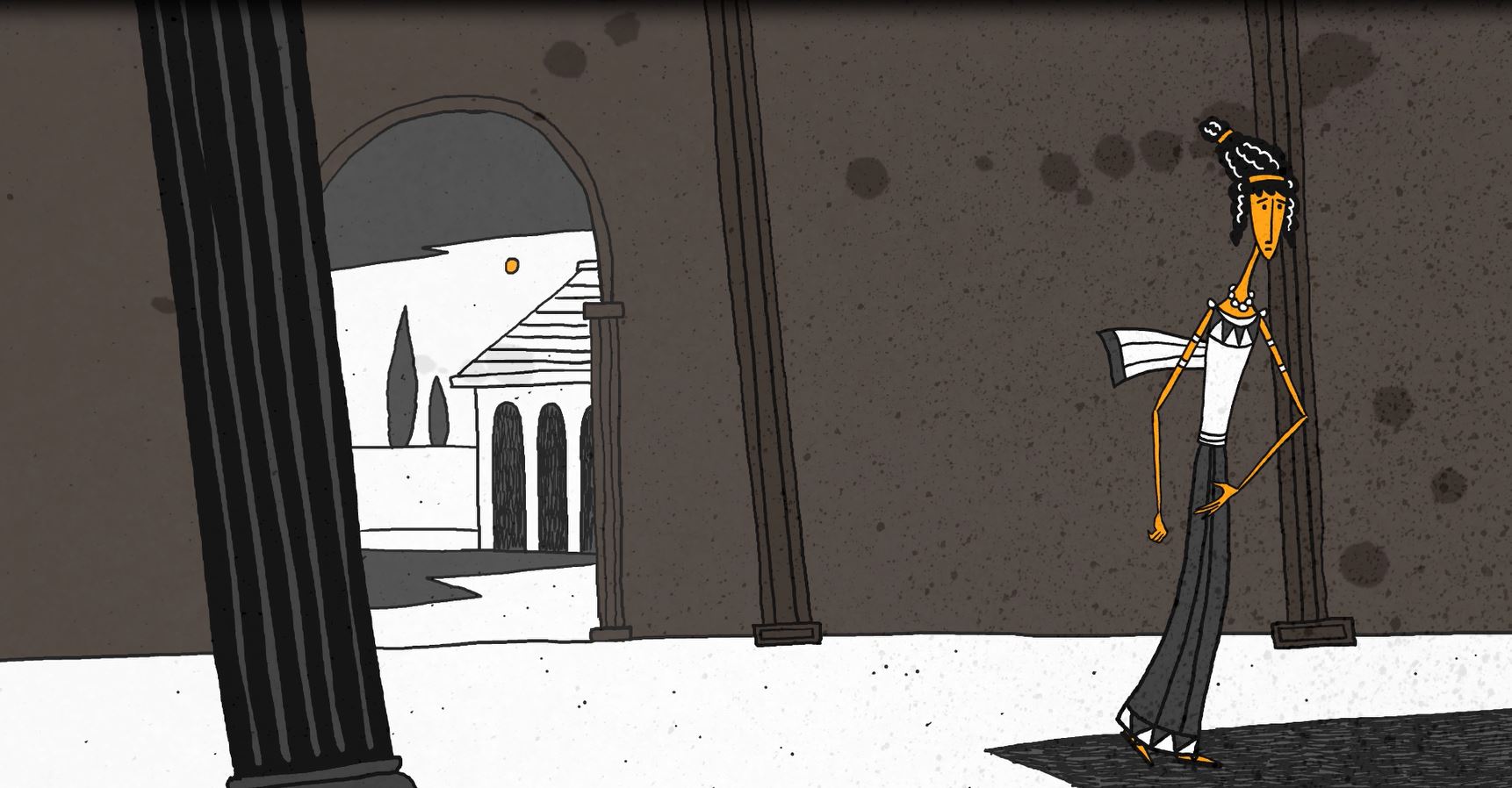This content is associated with The Open University's Classical Studies qualifications
The heroine Antigone is one of the four children of Oedipus (her siblings are Ismene, Eteocles and Polyneices). A loyal daughter, she guided the blind Oedipus into exile before he died, and she’ll be equally faithful to her dead brother Polyneices.
Oedipus was king of Thebes, a city in central Greece. He is famous in Greek myth for unknowingly killing his father (Laius) and marrying his mother (Jocasta). Oedipus dies before the action of Sophocles’ play Antigone begins, but his memory and cursed existence loom over everything that happens to his descendants.
Creon is the brother of the dead queen Jocasta (the wife and mother of Oedipus). He is fierce and steadfast – some might even say arrogant – but will meet his match in his young niece Antigone. Sophocles’ play begins at the point when Creon has taken over the throne of Thebes - ‘a city in chaos’.
Ismene is Antigone’s younger sister. She too is a loyal sibling, but she’s more cautious than Antigone, and fears the consequences of defying their uncle Creon.
Eteocles is the brother of Antigone, Ismene and Polyneices. He took control of Thebes after King Oedipus died, but then refused share the throne with his brother Polyneices. The two brothers fought and killed each other outside one of the city’s seven gates – and that’s when the real trouble began.
Polyneices is the brother of Antigone, Ismene and Eteocles. His name means ‘many troubles’, and he’s generally remembered as ‘the bad brother’, because he attacked Thebes with a foreign army. While Eteocles was buried with full ritual honours, Polyneices was left as carrion for the crows, in punishment for the vile crime of assaulting his own city.
Haemon is the son of Creon and Eurydice, and cousin to the four children of Oedipus. He is in love with Antigone, and the pair plan to get married soon.
Eurydice is the wife of Creon (no relation to the other mythical Eurydice, the wife of Orpheus). She appears right at the end of the play Antigone, in profoundly wretched circumstances.
Teiresias is an old blind prophet from Thebes, who can predict the future from observing birds and other creatures. Years ago, he had guided King Oedipus towards the truth about his incestuous marriage. In Antigone, he will return to the Theban royal palace to warn Creon of some horrific omens from the gods. But will Creon believe him?
Versions of the Antigone story are explored as part of The Open University module A111 Discovering the Arts and Humanities.








Rate and Review
Rate this article
Review this article
Log into OpenLearn to leave reviews and join in the conversation.
Article reviews